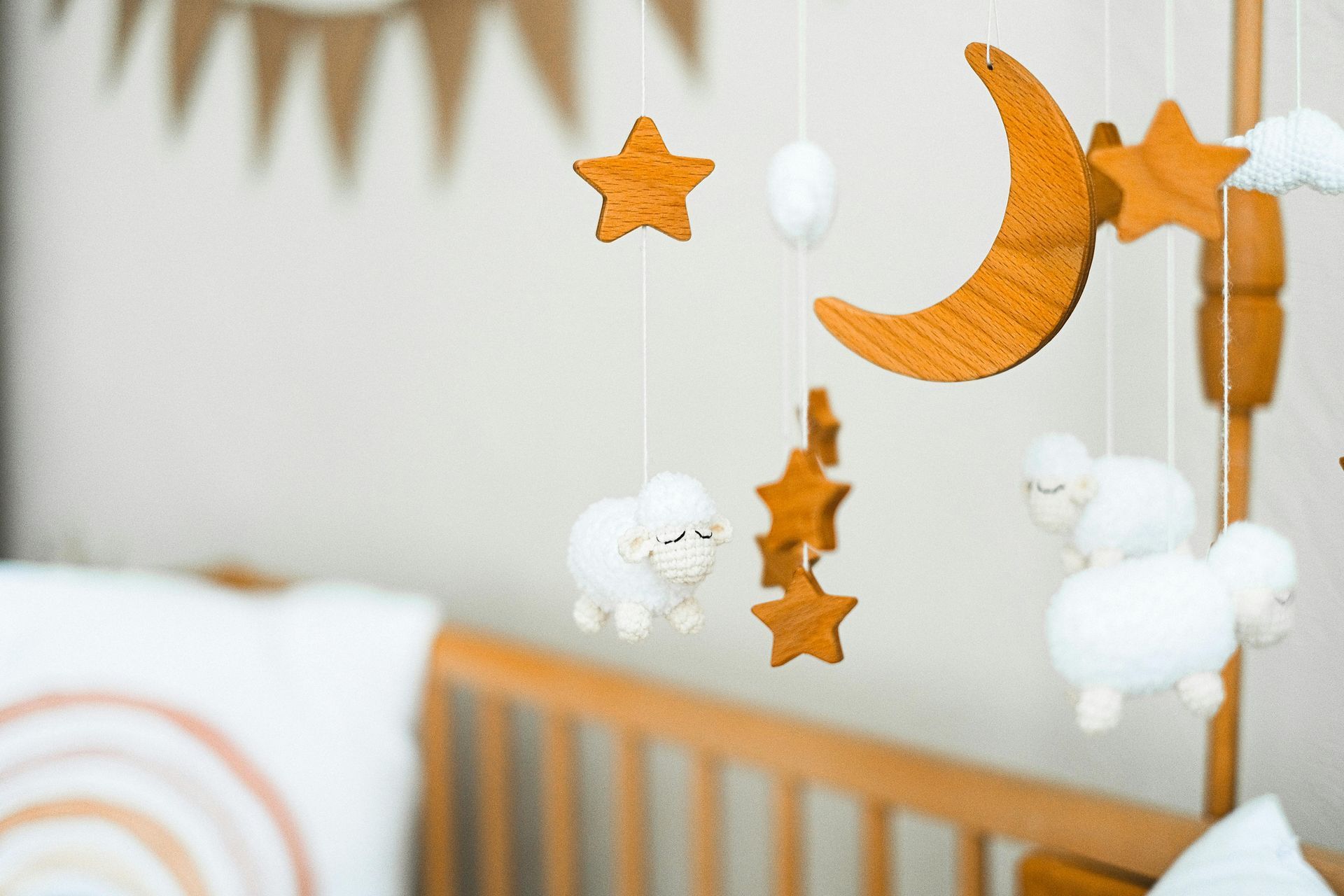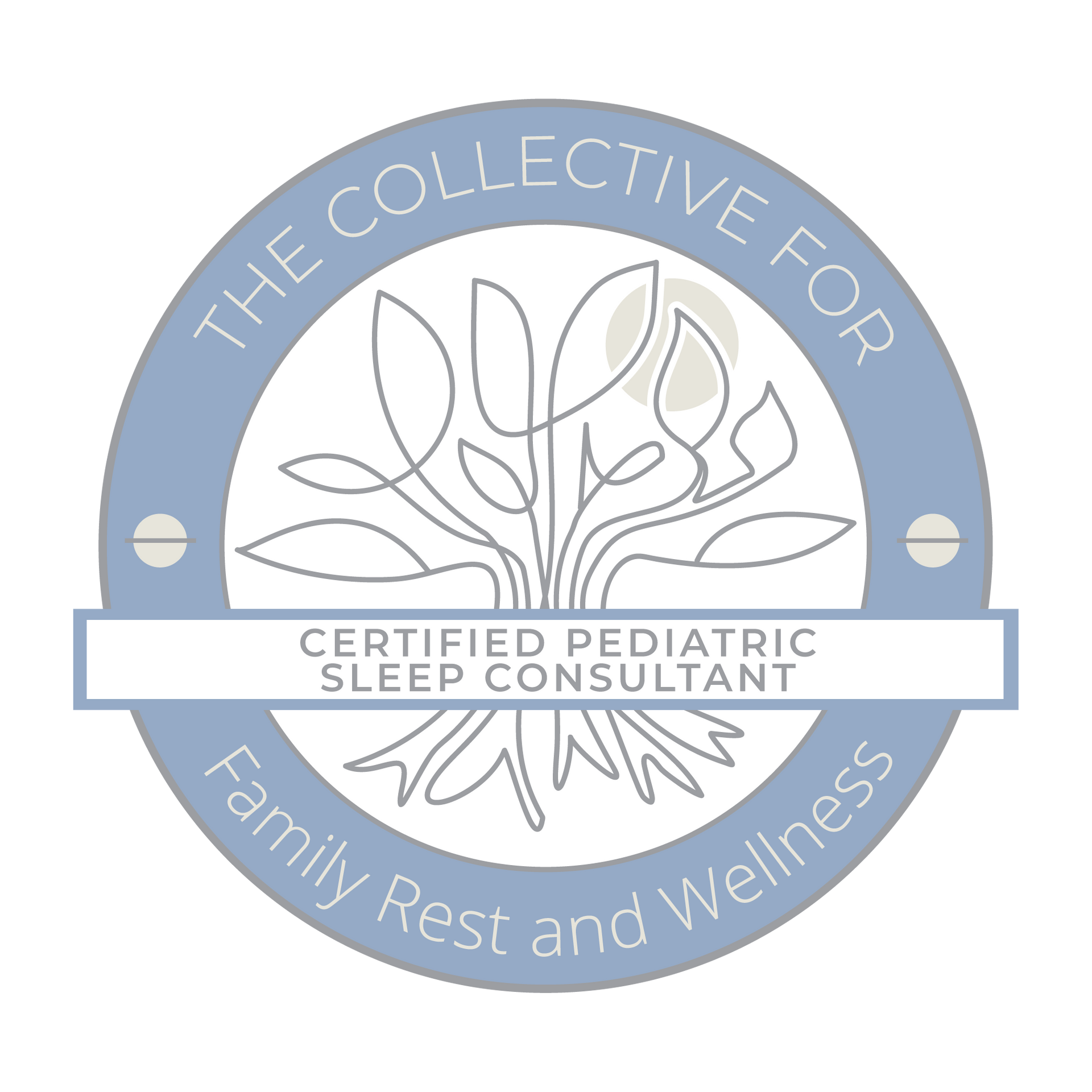The Ultimate Guide To Baby Sleep Regressions
What is a Baby Sleep Regression?
Simply put, a baby sleep regression is the experience of your once great or even "ok" sleeper suddenly regressing into even worse sleep. Parents will often report that their baby that was once a great sleeper, sleeping 8+ hours is now waking frequently or even every hour of throughout the night. A baby sleep regression can look like anything from fighting sleep and fussing around bedtime to waking up every hour or staying up for long periods in the middle of the night. A regression isn't a couple of nights of poor sleep but a longer period of repeated wakings, fussing or anything that disrupts your baby's typical sleeping patterns over a 2-6 week period. Sleep regressions might not impact every baby and may not even be noticeable to parent's that have sleep trained independent sleepers, but if you are wondering if your baby is in a regression, there are signs to look out for.
Signs Your Baby is Experiencing a Sleep Regression
As previously mentioned, a sleep regression isn't just a couple of nights of poor sleep but is a longer period of time where your baby is experiencing poorer sleep habits than usual. Here are some signs that your baby may be going through a sleep regression:
- Your baby is fussier than usual, especially around bedtime
- Your baby takes longer to fall asleep than usual
- Your baby is experiencing more frequent night wakings
- Your baby is experience longer night wakings
- Shorter naps
- Fewer naps
If you think that your baby is going through a regression and are experiencing some of the sleep habits above, then your baby is likely going through a sleep regression. But don't worry, there are things that you can do to help your baby through a sleep regression and remember - it isn't going to last forever!
What Causes a Baby to Have a Sleep Regression?
Because sleep regressions are generally just a disruption in your baby's normal sleep patterns, there are multiple things that can be impacting your child's sleep.
Developmental Milestones
One of the most common reasons or causes for a baby sleep regression is developmental milestones that your baby is going through. These milestones can be physical (like sitting up or crawling) or cognitive (like learning to babble or talk). When your baby is going through developmental milestone it tends to occupy their mind and keep them distracted from other things (like sleep). You may notice before your baby is crawling that they might get on all fours and rock back and forth in their crib. Or sit up practicing clapping their hands when they should be happily snoozing away. This can be really scary when you realize that there are more than 20 developmental milestones a baby goes through within their first year of life! Luckily for parents, as we will get into later, there are ways that we can help our babies through regressions due to developmental milestones.
Growth Spurts
Another reason your baby might be experiencing a sleep regression has to do with how quickly they are growing. During growth spurts, your baby may tend to sleep longer periods or shorter periods due to pain or hunger. During these times it can confuse the routine and sleep schedule depending on if your baby is sleeping shorter or longer than usual. They may also be hungrier during this time which could contribute to more wakings overnight or fussiness.
Traveling
Most parents have experienced this where a baby is sleeping great until you go on vacation. Then you are sharing a room or a space, the schedule gets all out of whack or they get sick and then all hell breaks loose once you return back home. If you are about to travel and want to avoid a sleep regression, do the best you can to give your baby a separate space to sleep (like the closet or the bathroom) and stick as closely to your schedule as possible to avoid regression.
Teething
This is another one that almost all parents will experiencing with their teething. It can be really painful for some babies! Teething causes inflammation, ear pain, jaw pain, fevers, diarrhea, runny nose and other extremely uncomfortable symptoms for your babies, so it is not surprising that it can cause sleep disruptions! If your baby is teething and sleep is suffering, do your best to ease their pain and be patient with sleep. Teething should be over soon and you can resume back to your regular sleep schedule with your baby.
Sickness
Much like teething, this one is inevitable and uncomfortable. During this time babies will need a lot of extra attention, love and patience when it comes to sleep. For babies that are experiencing fever, coughing and congestion, laying on their back can be extremely difficult for sleep as it makes those symptoms worse. Helping hold babies through their nap times to avoid over-tiredness can be crucial to helping them through this time. Again, this time is usually a short period where you can provide your baby extra comfort before returning back to your regular baby sleep schedule.
Separation Anxiety
This is a more common cause of a sleep regression for toddlers than babies. When toddlers get a little older (about 18 months to 4 years) they begin to anticipate bedtime and experience separation anxiety from their parents which can cause a drawn out bedtime, fussiness and longer night wakings.
Common Sleep Regression Ages
As sleep regressions do tend to follow along with certain developmental milestones we can point to common ages when your baby might be experiencing a sleep regression. Here are the common sleep regression ages you can look out for:
- 4 Months: Around this age babies are developing their circadian rhythm and sleep cycles are maturing, allowing them to experience more non-REM sleep. This can cause the baby to wake every hour or so but usually resolves itself within 4-6 weeks.
- 8-10 Months: This sleep regression is usually associated with physical milestones like sitting up and crawling along with a likely age for teething.
- 12 Months: This is another sleep regression that is linked to physical milestones (like walking) and an increased restlessness as they enter into the toddler phase.
- 18 Months: This sleep regression is linked to separation anxiety, independence and cognitive speech developments.
- 2 Years Old: This sleep regression is linked to independence, testing boundaries, separation anxiety, transition to toddler bed and speech developments.
How to Help Get Through a Sleep Regression
Sleep regressions can be a difficult time, especially if you had a previously glorious sleeper. Parents are often left confused and wondering where their great sleeper went. The great news if you can diagnose the issue causing your baby's sleep regression - then there are ways you can help them through it. Here are some ways that you can help through sleep regressions:
- Developmental Milestones: Help your baby practice their milestone as much as possible during their wake windows and especially before bed. If they get plenty of practice during the day, it will limit their need/want to practice it during the nighttime or naps when they should be sleeping!
- Growth Spurts: Make sure that your baby is getting an increase in ounces and solids (if they are 6 months+) so that they aren't waking out of comfort. For any pain from growth spurts you can try tylonel (after consulting with your pediatrician).
- Traveling: Stay as close to on schedule as you can and make sure your baby has their own place to sleep (like a pack and play and slumber pod).
- Teething: Try offering teethers, teething crackers, etc during the day and with a pediatrician's approval you can also offer Tylonel throughout the day and before bedtime to help ease any pain.
- Sickness: Set up a humidifier, give any tylonel for fevers (with pediatrician's approval), suck out any snot with a nose sucker, and offer any extra comfort needed to make sure they get the sleep they need. It is also okay during this time to offer more daytime sleep if needed to help them pass this sickness and recover.
- Separation Anxiety: This is a tougher one. But what I have found works best is creating a solid dinner, bath and bedtime routine so your baby/toddler can understand that bedtime is coming. You can also practice words of affirmation like "I love you, i'll see you in the morning" over and over throughout your routine. Draw out bedtime and offer extra stories, comfort and cuddles before saying goodnight.
Sleep Training Your Baby
In my experience, babies that have been sleep trained and are independent sleepers tend to do better throughout the ages when we typically see sleep regressions. When a baby doesn't know how to self soothe and put themselves back to sleep without a dependent sleep prop (like rocking, nursing or a pacifier) they are going to continue to need those things throughout frequent wakings and other issues that may cause a sleep regression. When babies that are independent sleepers experience more wakings, discomfort etc, they are likely to put themselves back to sleep without parents even knowing they woke up in the first place. If you are worried about these sleep regressions, it might be a good time to consider sleep training to help your baby learn the skills to combat any impending sleep regressions.



